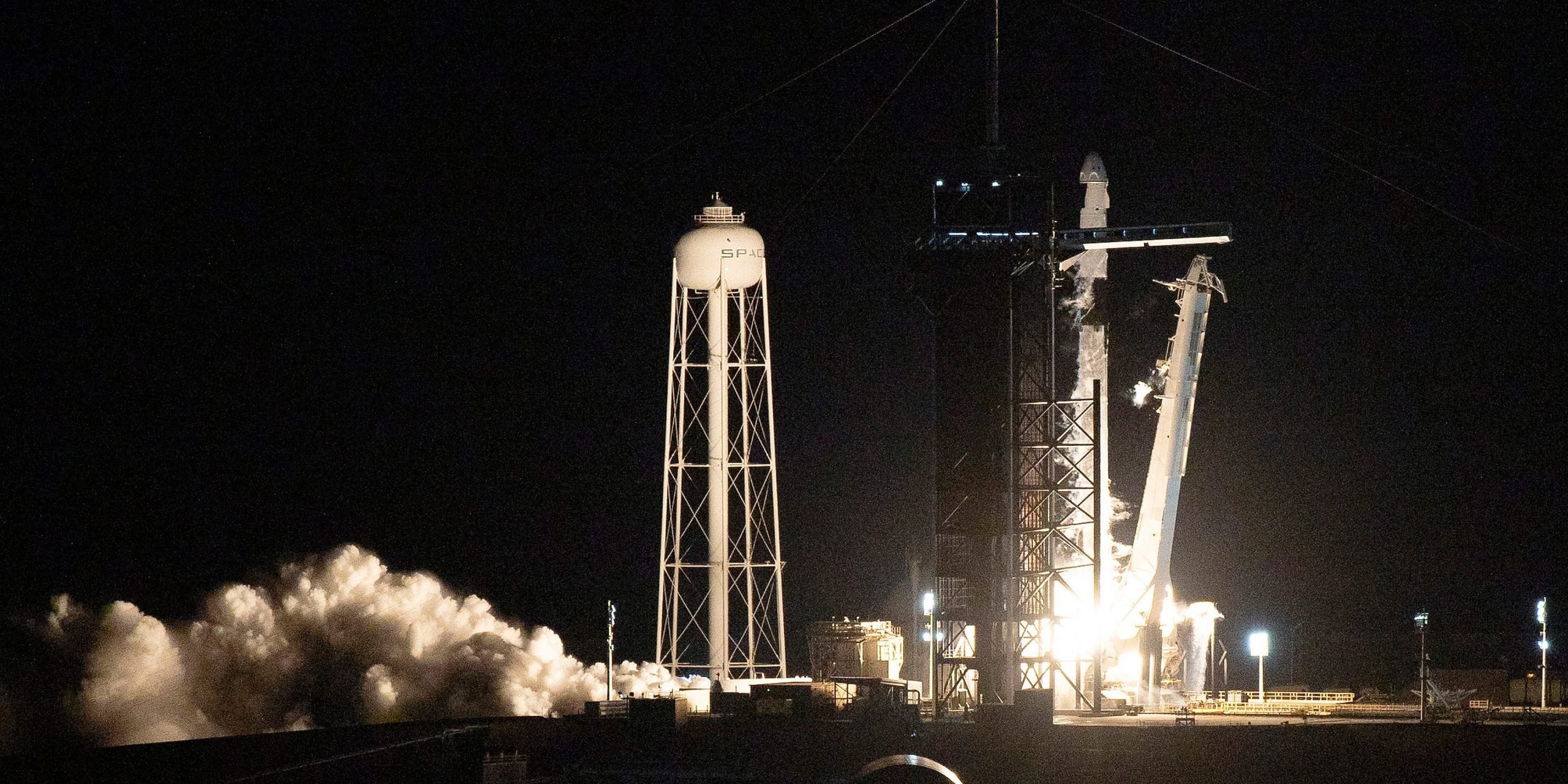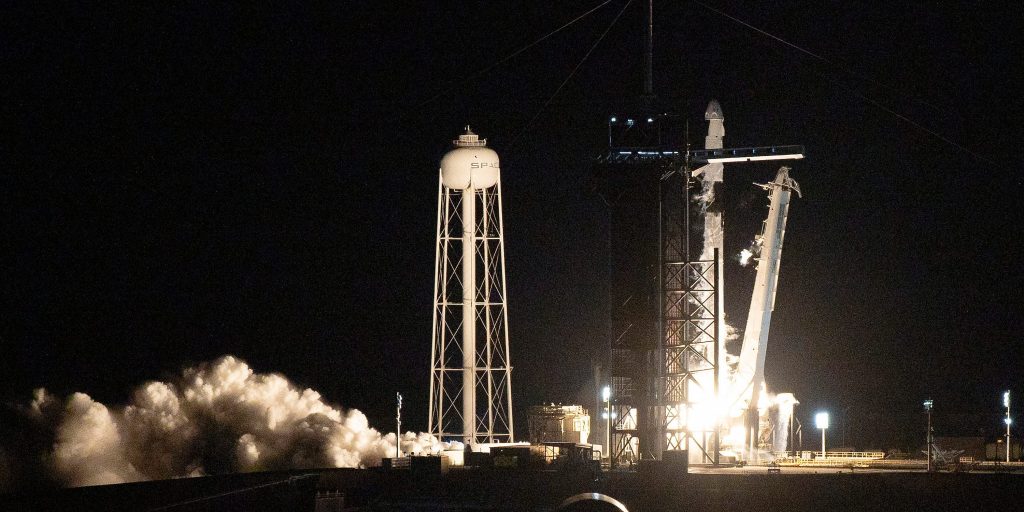
Joe Raedle/Getty Images
- SpaceX has been stirring up trillion-dollar hype among Morgan Stanley's clients.
- Morgan Stanley analysts have a $200 billion bull-case valuation for the firm – double what it is today.
- But they acknowledge SpaceX continues to challenge "any preconceived notion of what was possible and the time frame possible…"
- Sign up here for our daily newsletter, 10 Things Before the Opening Bell.
Elon Musk's SpaceX, one of the world's most valuable private companies, has been stirring up trillion-dollar hype among Morgan Stanley's clients.
The private space exploration company, after all, isn't just one company. It's "multiple companies in one," including communications, space infrastructure, earth observation, and deep-space exploration, among others, Morgan Stanley analysts, led by Adam Jones, said in a recent note.
As the nearly two-decade-old company hit an estimated $100 billion valuation, here is some of the buzz the bank has heard from its clients:
1. Trillion-dollar status
"More than one client has told us if Elon Musk were to become the first Trillionaire… it won't be because of Tesla."
Musk is already the world's richest person right now, as Tesla stock has soared in recent years. Founded in 2003, Tesla has emerged as one of the leading electric-car makers in the field and is now worth more than $860 billion. Similarly, Musk's net worth surged to $236 billion recently, eclipsing Amazon founder Jeff Bezos' fortune of $196 billion.
Meanwhile, Morgan Stanley puts SpaceX's valuation at $200 billion under its bull-case scenario, still well below Tesla's market cap. But Musk owns roughly half of SpaceX, and the analysts acknowledge it continues to challenge "any preconceived notion of what was possible and the time frame possible, in terms of rockets, launch vehicles and supporting infrastructure."
2. Most valuable company
"Others have said SpaceX may eventually be the most highly valued company in the world - in any industry."
SpaceX is estimated to be worth $100 billion after a secondary-share sale in early October. It's now the second most valuable privately held company in the world, according to data from CB Insights, just trailing behind TikTok parent Bytedance, which is worth $140 billion.
But being the most valuable company overall implies SpaceX would top Apple and Saudi Aramco, which have market caps of about $2 trillion.
While SpaceX is far from reaching even $1 trillion, it is multiple companies wrapped in one, and is at the top of a fast-growing sector, meaning it has a lot of room for growth, the analysts said.
3. The next Google?
"Talking about space before Starship is like talking about the internet before Google."
SpaceX is developing Starship to take human beings to the moon, Mars, and beyond. In August, SpaceX completed stacking a prototype Starship spacecraft with its booster ahead of an eventual attempt at its first orbital flight.
While initially envisioned as a vehicle for deep-space exploration, Starship's large payload capacity and full reusability are also expected to dramatically lower the costs of putting satellites into earth orbit.
Combine this with SpaceX's Starlink satellites, which provide internet service from 1,700 satellites floating in orbit, and you have what Morgan Stanley calls a "double flywheel of Launch + Starlink."
"We view SpaceX's launch capabilities and Starlink as inextricably linked whereby improvements in launch
capacity/bandwidth (both in frequency and payload per flight) and cost of launch improve the economics and path to scale of Starlink's LEO constellation," the analysts wrote.
"At the same time, development of Starlink's commercial opportunity provides a thriving 'captive customer' for the launch business, enabling a symbiotic
development."

